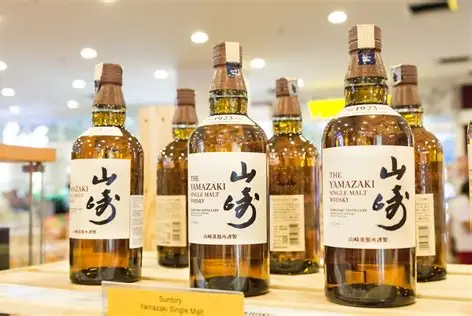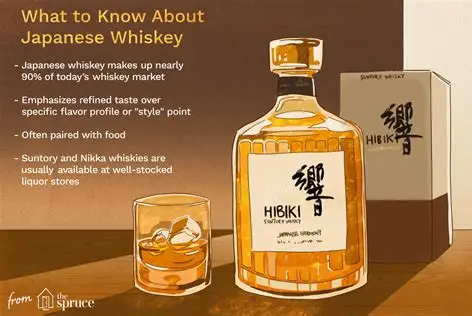Is Japanese Whisky Worth the Price?
Is Japanese Whisky Worth the Price? That is a question many people ask when they see how expensive Japanese whisky can be. Some bottles cost hundreds or even thousands of dollars. But why is Japanese whisky so pricey? Does it taste better than Scotch or bourbon? Is it something you should buy for yourself or as a gift?
In this article, we’ll explain everything in simple terms. You’ll learn how Japanese whisky is made, why it costs so much, and whether it’s worth spending your money on it. We’ll also share links to helpful guides and show you where to buy authentic Japanese whisky online from Whiskey Worlds.
A Short History of Japanese Whisky
To understand why Japanese whisky is so expensive, you need to know its history. Japanese whisky making started in the early 1920s. Two men—Masataka Taketsuru and Shinjiro Torii—are often called the fathers of Japanese whisky.
- Taketsuru studied whisky making in Scotland. He learned how to use copper stills, oak casks, and barley to create whisky.
- Torii was a businessman who founded Suntory. He asked Taketsuru to help him create the first real Japanese whisky distillery, Yamazaki, in 1923.
This long history means Japanese whisky makers have had 100 years to perfect their craft. They learned from Scotland but added their own unique style.
For more history details, you can read our full guide: Yamazaki 12-Year Review and Buyer’s Guide.
How Japanese Whisky Is Made
The process of making Japanese whisky is similar to making Scotch whisky, but there are some special differences that make it unique.
1. The Ingredients
Japanese distilleries use high-quality barley, pure water, and sometimes even rice. Many of the water sources in Japan are very clean and soft, which makes the whisky smooth and delicate.
2. Copper Stills
Japanese whisky makers use copper pot stills, often smaller than those used in Scotland. Smaller stills mean smaller batches, which allows more control over flavor but also leads to higher costs.
3. Aging in Different Casks
One reason Japanese whisky is worth the price is because of the special casks used for aging. Some distilleries use Mizunara oak, a rare type of Japanese oak tree. Mizunara oak gives the whisky unique flavors like sandalwood, coconut, and incense. But Mizunara is very expensive because the trees are rare and take many years to grow.
4. Patience and Time
Many Japanese whiskies are aged for 10, 12, 18, or even 30 years. The longer the whisky ages, the richer and smoother it becomes. But longer aging also means fewer bottles are available, which increases the price.
Want to know more about how oak casks affect flavor? Check out our article: The Macallan Experience: From Grain to Glass.
Why Japanese Whisky Costs So Much
Now let’s answer the big question: why does Japanese whisky cost so much?
1. Limited Production
Unlike some Scotch or bourbon brands that make millions of bottles a year, Japanese distilleries make smaller amounts. This makes their bottles harder to find. When something is rare, its value goes up.
2. High Quality Standards
Japanese whisky makers are known for their attention to detail. They are very careful about each step of the process, from choosing barley to aging the whisky. This quality control makes the whisky special, but it also makes it more expensive.
3. Global Popularity
In the last 10 years, Japanese whisky has become famous worldwide. Whisky lovers in the U.S., Europe, and Asia all want a taste. With so many people wanting the same bottles, prices have gone up.
4. Awards and Prestige
Japanese whiskies often win international awards. For example, the Yamazaki Sherry Cask 2013 was named the best whisky in the world in 2015 by Jim Murray’s Whisky Bible. Awards like these make the bottles even more desirable.
The Taste of Japanese Whisky
One reason many people think Japanese whisky is worth the price is its taste. Japanese whiskies are often described as smooth, balanced, and elegant.
Here are some common flavors you might notice:
- Honey and vanilla
- Light fruit like pear, apple, and peach
- Gentle spices like cinnamon and ginger
- Soft oak, incense, or sandalwood (especially in Mizunara oak-aged whisky)
Japanese whiskies are not as smoky as some Scotch whiskies. They are usually lighter and more delicate, which makes them easy to enjoy neat, with a splash of water, or even in a highball (whisky and soda).
Want to learn more about how to taste whisky like a pro? Read our simple guide: How to Taste Whisky.
Popular Japanese Whisky Brands
If you’re thinking about buying Japanese whisky, here are some of the most popular brands:
1. Yamazaki
This is Japan’s oldest distillery. Bottles like the Yamazaki 12-Year and 18-Year are highly sought after.
2. Hibiki
Known for its beautiful bottle design and blended whiskies. Hibiki 17-Year is famous, but even Hibiki Japanese Harmony is excellent.
3. Hakushu
This distillery is located in the forested mountains of Japan. Its whiskies often have fresh, herbal flavors.
4. Nikka
Founded by Masataka Taketsuru, Nikka makes whiskies from the Yoichi and Miyagikyo distilleries.
Check out our full comparison: Hakushu vs Yamazaki: Which One Is Better?.
Is Japanese Whisky Worth the Price Compared to Scotch or Bourbon?
This is a question of personal taste. Here are a few comparisons:
- Japanese whisky vs Scotch: Japanese whisky is usually smoother and less smoky. Scotch can be bold, peaty, or malty.
- Japanese whisky vs bourbon: Bourbon is sweeter and heavier, while Japanese whisky is lighter and more balanced.
If you like delicate flavors and want something rare, Japanese whisky is probably worth it. If you prefer stronger flavors or need a whisky for mixing, you might prefer bourbon or Scotch.
The Rarity Factor
Part of what makes Japanese whisky so expensive is how rare it can be. Many bottles are made in small batches and released only in Japan. When these bottles reach the global market, collectors often buy them quickly.
Some rare bottles can sell for thousands of dollars at auction. For example, a Yamazaki 50-Year-Old sold for more than $300,000.
Tips for Buying Japanese Whisky
If you decide that Japanese whisky is worth the price, here are some tips for buying:
- Buy from a trusted shop. Fake bottles exist. Stick to sellers like Whiskey Worlds.
- Start with an affordable bottle. Try something like Hibiki Harmony or Nikka From the Barrel before spending big money.
- Read reviews. See what other whisky lovers think before you buy.
- Look for limited editions. These often increase in value over time.
Want more tips? See our guide: What to Know Before Your First Whisky Order.
How to Enjoy Japanese Whisky
Once you have your bottle, how should you drink it? Here are a few ideas:
- Neat: Drink it straight from a whisky glass to enjoy all the flavors.
- With water: Add a few drops of water to open up the aromas.
- On ice: A single large ice cube works best.
- Highball: Mix whisky with soda water and a slice of lemon. This is a popular way to enjoy whisky in Japan.
Call to Action: Shop Japanese Whisky Now
If you’re ready to try Japanese whisky and see for yourself whether it’s worth the price, visit Whiskey Worlds.
At Whiskey Worlds, you’ll find a wide selection of bottles, from affordable options to rare collector’s editions.
Related Articles You Might Like
- Hakushu vs Yamazaki: Which One Is Better?
- Yamazaki 12-Year Review and Buyer’s Guide
- The Macallan Experience: From Grain to Glass
Final Thoughts
So, is Japanese whisky worth the price? For many whisky lovers, the answer is yes. Japanese whisky is rare, carefully made, and full of unique flavors you can’t find anywhere else. If you enjoy whisky and want to taste something special, it’s worth trying at least once.
👉 Click here to shop Japanese whisky at Whiskey Worlds and start your own journey into the world of Japanese whisky.
Shop Section: Whiskey Worlds
Whiskey Worlds is your trusted online store for premium whiskies. You’ll find Japanese whisky from top brands like Yamazaki, Hibiki, Hakushu, and Nikka, as well as Scotch, bourbon, and rare collector’s bottles.


